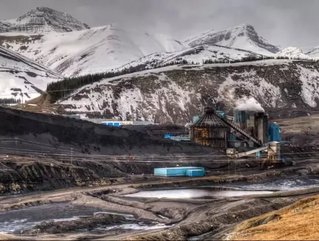Canada's mining sector does its part to protect children's rights

According to the Guardian, Canada is currently home to more than half of the world’s publicly-traded mining companies. Specifically, each company has more than 8,000 mineral projects across six continents—areas range from exploration to construction, as well as production and closure. However, the most alarming factor regarding these mining companies is that the projects are often located in undeveloped countries where children who are under the age of 18 account for more than half of the local populations.
RELATED TOPIC: The top 5 mining companies in Canada who are doing it right
These young children often stand the chance of negatively being impacted by the closeness of the mining operations. A variety of misfortunes can take place, including accidents with site vehicles, violence from construction sub-contractors or security forces and health and development complications.
Therefore, a handful of Canadian mining companies are doing their part to help support children and families through social investments throughout the community. Furthermore, these companies are improving the operational impact on the lives of children by changing company policies and practices—an action that all mining companies should consider pursuing.
RELATED TOPIC: An outlook on the current state of Canadian mining
The Children’s Rights and Business Principles has been a guideline for these mining companies, as they are serving to advance the wellbeing of children and enhance the impact of their commitments to communities.
Interestingly enough, considering children during stakeholder engagement is becoming more notable amongst several mining companies. Why? It turns out that during community consultations, children are overlooked as a key stakeholder group—even though children can provide important insights on different business impacts that are sometimes not captured through consultations with community leaders.
RECENT TOPIC: Can Canada learn from Australia’s free MBA programs for women?
Other ways in which mining companies could potentially help children is to consider them as part of their due diligence processes (i.e. integrating children’s rights indicators into its human rights risk assessment tool).
Canadian mining companies are beginning to pioneer children’s rights around the world—and it’s important for everyone in the industry to take note. All fields could benefit from pursuing this type of leadership.
For all of the latest news in the mining industry, visit our sister brand Mining Global.
RECENT TOPIC: How Canadian companies can avoid being ripped off
[SOURCE: The Guardian]
Let's Connect!
- BMW provide financial support for Lilac lithium extractionTechnology & AI
- Bradda plans a mining expansion involving Boart LongyearLeadership & Strategy
- Peru minister shoots down Southern Copper’s US$1.4bn mineLeadership & Strategy
- KPMG Provides Mining Industry Demand and Risk InsightsSustainability








